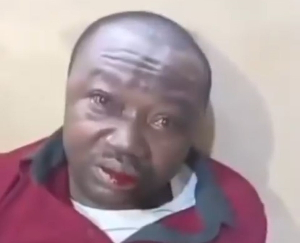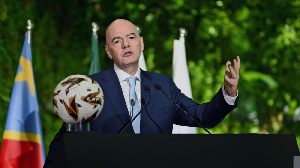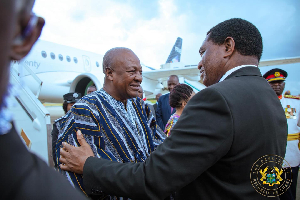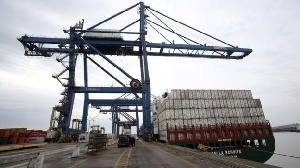Ghana's media, famously referred to as the fourth estate of the realm after the executive, legislative and judicial arms of government, undoubtedly has established itself as an ubiquitously necessary component of an increasingly ever more interconnected social environment in which we live today.
Traditional and social media reports provide both citizens and organisations up to the minute information on current happenings in the world.
The role of the media in the fight against all forms of crimes in our society cannot be underestimated. However, if prudent strict regulatory measures are not put in place to manage this highly dynamic and influential media environment, the risk of jeopardising the gains we have chalked in the area of security is very high.
This week for example, the media in exercising its right to keep government in check and to get it to resource the police in terms of personnel strength, accoutrements, accommodation, vehicles, arms and ammunition etcetera necessary to ensure effective policing, inadvertently handed "a free bonanza" by way of providing copious unsolicited information to criminal gangs in terms of the inner workings, inefficiencies, shortcomings, weaknesses, and challenges and in some cases exposing the personnel strengths of some police stations and regions.
In the Brong Ahafo and Western Regions for example, the media revealed in detail not only the shortage of personnel, vehicles, fuel or the lack of it, but went as far as telling the public how many weapons were in stock in some armouries.
A clear case in point was the report that exposed the Zabarima station in the Brong Ahafo Region was having only four policemen responsible for 20 communities.
This information will sound and appear like any other piece of news in the ears and eyes of the ordinary man on the street, but to the trained mind, this is not good news at all and could have been handled better considering the complex nature crime has assumed in our part of the world where criminals are becoming more and more emboldened to engage the police in shoot out anytime the police tries to stop them from committing crimes.
What the media needs to appreciate is that it is not only good citizens who listen to or watch television. Bad people do as well, and they do so in order to know when, where and how to strike.
Therefore, it is important that in reporting issues of security significance, the media will be more circumspect and measured in putting everything they know about the police out there in the public.
This is absolutely necessary just so that the media in their resolve to seek the best for the police and the people, do not end up exposing them to danger of attacks from criminals.
It is my humble view that the report of shortage of police personnel in the Brong Ahafo and Western Regions in the beginning of the week respectfully could have been done in such a way that did not necessarily have to tell the whole world the strength of personnel in those regions.
This is not however intended to downplay these reports as they are required to remind government of myriad of problems facing the police.
There are however serious security implications and breaches that could arise out of the giving out such information to the public which is likely to be used by criminal gangs to the detriment of the police and the people in those two regions and to the country as a whole.
How will the media react if terrorist groups or armed robbers rejoice upon hearing that the police in Ghana is heavily challenged in terms of personnel, weapons and ammunitions?
It is essential to emphasise in plain terms that these concerns raised by the media are well intentioned, necessary and of immense importance. But unfortunately, it was echoed loudly to an audience who by all intents and purposes didn't deserve to be handed this information.
Unfortunate as the media's action may be from the perspective of the critical security watcher, I don't think the media is entirely blamable in this giving the fact that governments over the years have largely turned a blind eye to the problems hindering the effectiveness of the police service.
Our people say that "if you want to speak to hearing of God, speak to the wind" I guess perhaps the media chose to speak to the government using the airwaves so that they will listen and take immediate steps to remedy the situation.
The ideal situation would have been for the media to sit on a roundtable with all stakeholders including government and the police to fashion out how these issues raised can be addressed instead of letting the cat out of the bag in the full glare of everybody including criminal gangs.
The fight against crime can be taken a notch higher if the media supports, collaborate and work with the police more than they have done anytime in the past in exposing criminals and criminal activities.
Let's all agree that the report is already out there and harm if any has already been done. It is essential that government now rises to the occasion taking cognisance of the report provided to retool the police.
Panacinp@gmail.com
Opinions of Saturday, 26 August 2017
Columnist: Abdul Hanan Mohammed EL-Saeed
Reports of shortage of police personnel: The media was right and wrong at the same time
Opinions














